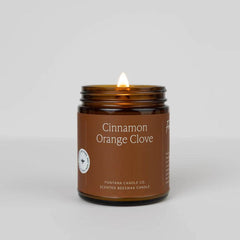Cleansing is the foundation of every good skincare routine—and the key to a healthy, balanced complexion.
But are you using the right face wash for your skin? A 2020 Cerave Survey found 6 in 10 adults choose facial cleansers without considering their skin type. And, 8 in 10 choose a cleanser by trial and error. Many associate a tight, squeaky-clean feeling with effectiveness—when in reality, it’s a sign your cleanser is stripping essential moisture.
So, how do you find a face wash that cleanses without over-drying or clogging pores? Start by understanding your skin type.
Best Ingredients for Your Skin Type
The right ingredients will help you find the right moisture balance for your skin type.
Table of Contents:
Oily or Acne-Prone Skin
Trying to “dry out” your skin to get rid of excess oil? Stripping your skin of oil triggers more oil production. The key? A cleanser that removes excess oil without drying out your skin.
✔️ Balances oil & reduces shine → Clay, activated charcoal, mild exfoliants
✔️ Fights breakouts → Salicylic acid, willow bark
✔️ Kills bacteria → Tea tree, black cumin seed oil, witch hazel
✔️ Hydrates without clogging pores → Glycerin, aloe, sodium hyaluronate, cucumber
🚫 Avoid: Alcohol, SLS, heavy oils (like mineral oil)
Dry or Dehydrated Skin
If your skin feels tight, flaky, or rough, it needs extra hydration and barrier support.
✔️ Boosts hydration → Hyaluronic acid, aloe, glycerin
✔️ Locks in moisture → Shea butter, squalane, ceramides, botanical oils
✔️ Soothes irritation → Oat extract, chamomile, honey
🚫 Avoid: Harsh foaming agents, drying alcohols, artificial fragrances
Sensitive or Reactive Skin
Easily irritated? Choose gentle, soothing ingredients that protect your skin barrier.
✔️ Calms redness & irritation → Colloidal oats, aloe, calendula, cucumber
✔️ Hydrates without irritation → Glycerin, squalane, jojoba, sunflower, ceramides
✔️ Calms inflammation → Niacinamide, green tea, camellia extract licorice root
🚫 Avoid: Alcohol, SLS, fragrances, essential oils
Combination Skin
Oily in some areas, dry in others? Look for balanced formulas that hydrate without overloading oil-prone zones.
✔️ Regulates oil → Niacinamide, green tea, rice bran
✔️ Maintains hydration → Aloe vera, glycerin, squalane
✔️ Gently exfoliates → Willow bark, fruit enzymes, oatmeal
🚫 Avoid: Harsh exfoliants, alcohol, sulfates
Mature or Aging Skin
As skin matures, it needs hydration, collagen support, and gentle renewal.
✔️ Hydrates & plumps → Hyaluronic acid, avocado oil, glycerin
✔️ Repairs skin barrier → Ceramides, squalane, peptides
✔️ Supports renewal → Lactic acid, fruit enzymes, vitamin C
🚫 Avoid: Sulfates, parabens, alcohols, artificial fragrances
Dull or Uneven Skin Tone
For radiance and even skin tone, choose brightening and mild exfoliating ingredients.
✔️ Brightens → Vitamin C, niacinamide, papaya enzymes
✔️ Boosts hydration → Hyaluronic acid, niacinamide, squalane, plant oils & butters
✔️ Exfoliates gently → Lactic acid, glycolic acid, fruit enzymes, colloidal oats
🚫 Avoid: Harsh scrubs, over-exfoliation, drying alcohols
Final Tip: Once you’ve found the right ingredients, the best texture (gel, cream, oil, or powder) is up to your preference and routine!
Looking for specific-recommendations? Read our guide on the best face washes for every skin type."




